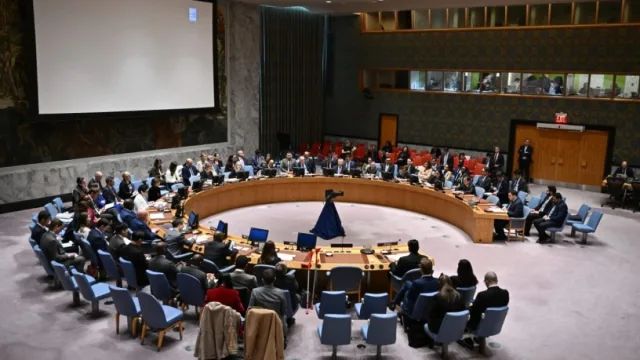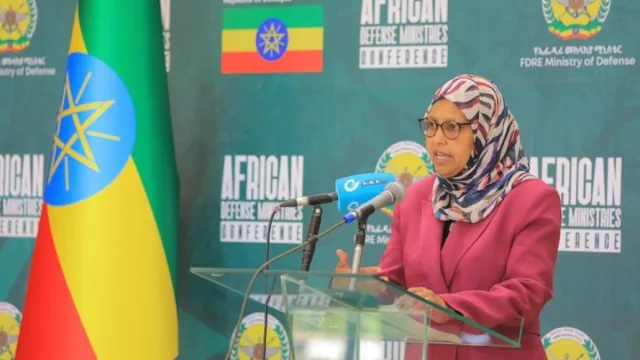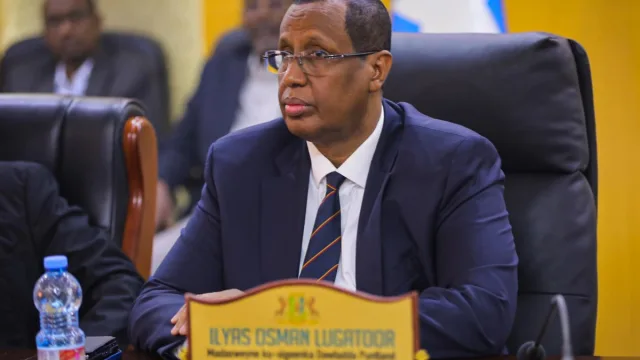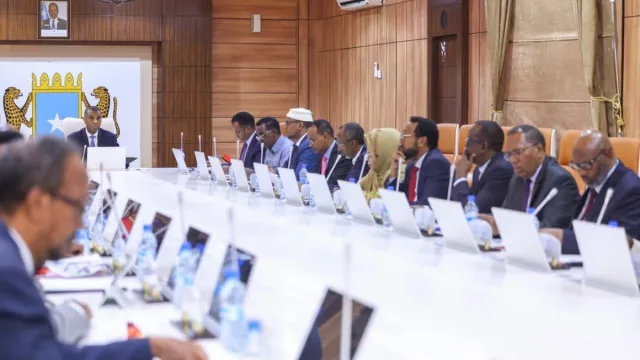Despite threats, clan politics and marginalization, some Somali women hope to change the country’s political culture.…
![Fawzia Yusuf Adam has served as Somalia's first foreign minister and deputy prime minister [Reuters]](https://horseedmedia.net/wp-content/uploads/2014/06/Somali_Women_Politics.jpg)
Despite threats, clan politics and marginalization, some Somali women hope to change the country’s political culture.
“I get threats, day in, day out,” says Fawzia Yusuf Adam. “Yes, it happens, but I am not afraid about what might happen tomorrow. I am busy with today.”
Adam is one of Somalia’s most senior female politicians. A former diplomat and long-time women’s rights activist, she became the country’s first ever female foreign minister and deputy prime minister in 2012. No longer in that post, she is now one of a small number of female members of parliament.
The threats she laughs off come from al-Shabab, the hardline rebel group. It has a two-fold vendetta against female politicians: It is waging war against all members of the Somali government, and its extreme reading of Islam prohibits any female participation in the public sphere.
Somalia is broadly considered to be one of the worst places in the world to be a woman – a situation that predates the presence of Islamic extremism. The country’s central government collapsed in 1991, kick-starting more than two decades of anarchy and civil war. Rape and domestic violence are endemic, while women have been almost entirely excluded from political and judicial structures in the country. The collapse of the state led to an emphasis on customary law and sharia law, and a reliance on clan-based political representation. None of these systems are particularly favourable to women.
The federal government of Somalia was established in August 2012, after the mandate of the country’s transitional government, in place since 2004, expired. Article 3 of the provisional constitution specifies the importance of women’s political participation, saying that “women must be included, in an effective way, in all national institutions, in particular all elected and appointed positions across the three branches of government”.
The framework set up for the new federal government guaranteed that 30 percent of parliament’s seats would go to women – but this was not included in the constitution, and women ultimately make up around 14 percent. President Hassan Sheikh Mohamud took over in September 2012, voted in by members of parliament. In his cabinet, there are only two female ministers – Nadifo Mohamed Osman, minister of public works and reconstruction, and Khadija Mohamed Diriye, minister of women and human rights. Women also occupy some deputy minister posts.
Mariam Aweis Jama was minister of women, human rights and gender in the last phase of the transitional government, and is now head of the Committee of Human Rights and Gender in parliament.
“The challenges are there,” she says. “We had to mobilise politicians and traditional leaders just to accept women into the parliament. But Somali women are increasingly educated and ready to participate in the reconstruction of the country.”
Somalia is gearing up for its first democratic election for more than 20 years, which will take place in 2016. Jama and other female politicians are fighting to get the 30 percent quota formalised before then.
Many speak of Adam’s appointment to such a senior office as a turning point for female representation in the country.
“It was a first,” says Adam. “I travel around the country and whenever I speak to young girls, they say, ‘Now I have hope, now I know I can do something, I know I can get somewhere.’ I always tell women wherever I speak that no one can stop you if you want to be somewhere. Men will support you in the end if you say no to going backwards.”
Of course, there are worlds between the educated women entering Somalia’s halls of power and the most disenfranchised in society: those trapped in camps for internally displaced people, where there is no formal education and rape is endemic.
But scant female representation has far-reaching implications for everyone. Human Rights Watch recently published a report titled “Here, Rape is Normal”, which examines the extent of sexual violence in Somalia.
“When women are in positions of authority, it has a huge impact on how crimes are reported and investigated,” says Samer Muscati, author of the report. “This permeates all the way to the top. It’s not just in terms of making sure the security forces and police are better represented. Even in government and politics there’s a link between women’s inequality and sexual and gender-based violence. In order to eradicate gender inequality, you need to have women at the table.”
Yet there remain major barriers to women’s participation. First and foremost are regressive cultural norms. Both Jama and Adam cite “tradition”, but are keen to stress that Islam is not to blame.
“It’s in the roots to keep women away from power, but I don’t believe it’s religious,” says Adam.
“The main issue is traditional,” says Jama. “But during the civil war, women really played a big role to sustain their families and develop the country. They work in local NGOs to develop communities. So even if people cannot see it, women can already play a very big role developing this country.”
Another issue is the prevalence of clan rule, a major factor in Somalia’s politics and in the violence of the civil war. In an attempt to keep peace, members of different clans have been allocated certain numbers of seats in the federal government.
However, this arguably has a negative effect on women’s representation. The system promotes the interest of male clan members; women cannot become leaders of clans and do not have access to traditional decision-making processes.
“Clan leaders often tell women wanting to become members of parliament that the number of seats designated to each clan are too few to allocate seats to women,” wrote Shukria Dini of the Somali Women’s Study Centre.
Clan divisions also hinder women from forming a powerful caucus in parliament that could lobby for change on issues such as sexual violence and female participation.
“This much-needed action is hampered by tribalism,” says Adam. “I wish they never used that formula for parliament. Those divisions are still there, but hopefully, slowly, women will be brought together so we can achieve something for other women.”
Somalia is now in the very early stages of rebuilding a collapsed economy and political system. It is a significant achievement that the federal government has remained in place this long, but much of the country remains mired in chaos and the enforcement of any laws is difficult.
“The government suffers from a lack of capacity and a lack of ability to move quickly,” explains Muscati. “There seems to be a commitment to improving women’s rights, but we need to see this followed up with practical steps.”
Adam and Jama are optimistic about Somali women’s efforts to change their future. “It is really a challenge, but we are trying to mobilise the community – especially politicians and traditional leaders – to understand that women are power,” says Jama.
“If you go way back in Somalia’s history, to nomadic times, women did everything,” says Adam. “We were very strong from the beginning: We had women running for government in 1968. We have been put far back in recent years, so it’s not easy.
“But when you start to join in, then men see that yes, you can achieve, you can do something, and they start to respect you. Women should not shy away from saying, ‘Look, I can do it.’ We will pick it up again. We are coming back.”
Source: Aljazeera





